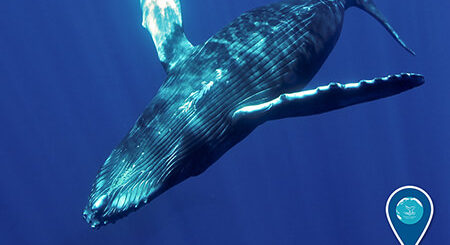June 8th, World Ocean Day, was first introduced during the 1992 Earth Summit — the United Nations Conference on Environment and Development (UNCED). The UN formally designated an annual World Ocean Day with a resolution on June 8, 2009.
This year’s theme, “Planet Ocean: Tides are Changing”, aims to raise awareness about the result of human activities on the oceans and to motivate people to use the ocean’s resources sustainably.
This year’s event will be hosted at the UN New York Headquarters, with the celebrations broadcasted online. No matter where you are in the world, you can join in. After all – when it comes to preserving and restoring our oceans, we should be in this together.
The goal of the event is to raise awareness about the impact we have on the oceans and why we should mobilize to protect them for future generations. The day comes with many learning opportunities about ocean ecosystems and biomes, underwater creatures, and the effects of climate change.
The oceans are our planet’s lungs, supplying most of the oxygen we breathe. They comprise a large component of the biosphere, provide oxygen, life-saving medication, and food for all living things. They are a vital element of the ecosystem. 34% of the earth’s surface is covered by the ocean. It comprises a wide variety of life forms, such as plants, animals, and other living beings.
Finally, it is a day to celebrate the ocean’s beauty, prosperity, and promise as a community.
The National Oceanic and Atmospheric Administration (NOAA) is celebrating World Ocean Day as well as World Ocean Month in June. Watch a short video about the oceans and browse through the NOAA Resources to find over 340 ocean facts, how to preserve Coral Reefs, 50 ways to love the ocean, and saving whales. Watch a host of NOAA ocean videos.
Watch a longer video for younger audiences and check out the teaching resources at Twinkl.
Here are some water facts that might help you do your part to protect the oceans:
- Approximately 500 million plastic straws are used and disposed of in the U.S. every day. That’s enough to fill 127 school buses. Skip the straw.
- Americans use an estimated 100 billion plastic bags each year. Floating in the ocean, these bags are often mistaken for jellyfish by unassuming sea turtles and other marine species. Skip the plastic bag. Use reusable and/or cloth bags.
- Only 2.5 percent of our planet’s water is freshwater, while a staggering 97.5 percent is saltwater. Be careful what you put down the drain. Don’t dispose of medicines, or toxic substances in your sink or tub.
- A bathroom faucet runs at approximately two gallons of water per minute. Don’t let the faucet run while brushing your teeth or rinsing dishes. Take shorter showers.
- It takes an estimated 1,850 gallons of water to produce a pound of beef. Add meatless meals to your menu.

